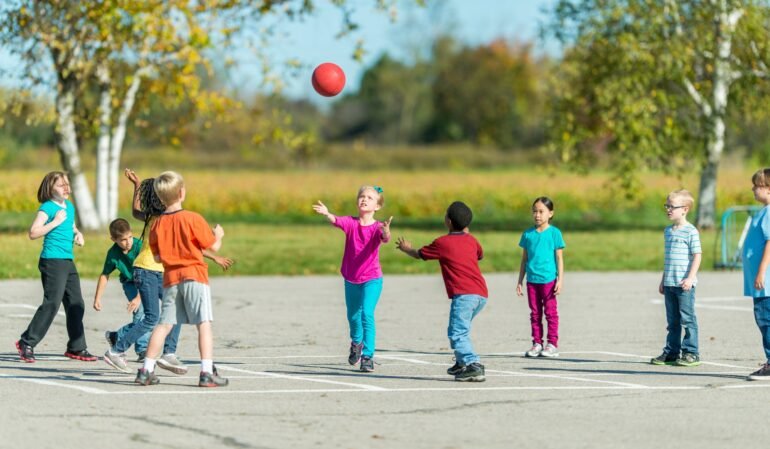
As parents, we all want our children to grow up happy, healthy, and ready for the world. One of the most powerful tools for achieving this is play. In Grande Prairie, daycare centers like Bear Creek Daycare & OSC recognize the importance of play-based learning in early childhood development. This blog explores why play is essential, how it benefits children, and what to look for in a play-based learning environment.
Why Play Matters in Early Childhood
Play is much more than just fun—it’s a critical part of how children learn and grow. Through play, children explore the world around them, develop new skills, and build strong foundations for future learning. Play-based learning allows children to follow their interests, solve problems, and express themselves in a safe and supportive setting.
Key Benefits of Play-Based Learning
- Social Skills Development: Play helps children learn to share, take turns, and cooperate with others. These skills are essential for building friendships and working well in groups.
- Emotional Growth: Through play, children learn to manage their emotions, handle frustration, and develop resilience. Pretend play, in particular, allows children to explore different roles and feelings.
- Cognitive Development: Play encourages curiosity, creativity, and problem-solving. Whether building with blocks, creating art, or exploring nature, children develop critical thinking and reasoning skills.
- Language and Communication: Play provides endless opportunities for children to talk, listen, and expand their vocabulary. Storytelling, role-playing, and group games all support language development.
- Physical Development: Active play helps children develop fine and gross motor skills. Running, jumping, climbing, and crafting all contribute to healthy physical growth.
What Does Play-Based Learning Look Like in Grande Prairie Daycares?
In a quality play-based learning environment, children have access to a variety of materials and activities that encourage exploration and creativity. Educators act as facilitators, guiding children’s play and extending their learning through thoughtful questions and challenges. A typical day might include:
- Free Play: Children choose activities that interest them, such as building, drawing, or playing with dolls.
- Guided Play: Educators introduce new ideas or challenges to deepen children’s understanding and skills.
- Outdoor Play: Time spent outside allows children to explore nature, develop physical skills, and enjoy fresh air.
- Creative Arts: Painting, music, and drama encourage self-expression and imagination.
- Group Games: Cooperative games help children learn teamwork and social skills.
How Parents Can Support Play at Home
Parents play a vital role in supporting their child’s development through play. Here are some simple ways to encourage play-based learning at home:
- Provide Open-Ended Toys: Blocks, art supplies, and dress-up clothes encourage creativity and imagination.
- Spend Time Outdoors: Nature walks, playground visits, and backyard play support physical and cognitive development.
- Join in the Fun: Play with your child, follow their lead, and encourage them to explore new ideas.
- Limit Screen Time: Encourage hands-on, active play instead of passive screen time.
- Celebrate Creativity: Praise your child’s efforts and creations, no matter how simple.
Conclusion
Play-based learning is at the heart of early childhood development in Grande Prairie. By choosing a daycare that values play, you’re giving your child the best possible start in life. At Bear Creek Daycare & OSC, we’re proud to offer a nurturing, play-based environment where every child can learn, grow, and thrive. If you’re looking for a daycare that understands the power of play, we invite you to visit us and see the difference for yourself.